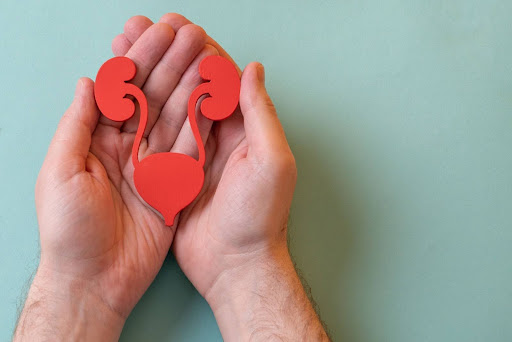
The body is made up of different systems that all work together to keep us healthy and functioning. The urinary system, or urinary tract, plays a big part in keeping your body running in tip-top shape. When it’s not working properly, it can lead to larger health issues. But before we can get into more in-depth topics and urologic conditions, Alliance Urology is here to help you understand how the urinary system works.
What The Urinary System Does
The urinary system, or urinary tract, is responsible for removing liquid waste from the body in the form of urine. You can think of it as your body’s drainage system. As a system, it filters, transports, stores, and expels the excess water and waste products in your blood. The filtration performed by the urinary tract is vital to keep the body healthy. Without this system, your blood would be full of waste products and extra water. This could cause other systems, like the cardiovascular system, to malfunction and cause serious health issues.
Anatomy Of The Urinary Tract
In order for your urinary tract to function properly, all of the organs in the system must be working together correctly. Each organ has a specific function to carry out, and if one part of the system is not working right, the rest are unable to do their jobs. There are four parts of the urinary tract: the kidneys, the ureters, the bladder, and the urethra.
Kidneys
The kidneys are a crucial part of the urinary system and play a big role in keeping your body working correctly. The kidneys are two bean-shaped organs that are located just below the rib cage, with one on either side of the spine. The kidneys are about the size of a fist. These organs are working at all times to filter your blood. They remove excess water and waste from the blood. According to the National Institute of Diabetes and Digestive and Kidney Diseases, the kidneys filter about 150 quarts of blood each day to produce about 1 to 2 quarts of urine.
Ureters
The ureters are two thin tubes of muscle that carry urine from the kidneys to the bladder. There is one tube extending from each kidney.
Bladder
The bladder is a hollow balloon-shaped organ located in between the pelvic bones in the pelvis. The bladder’s walls are made of muscle tissue. Urine travels from the kidneys and through the ureters and is collected in the bladder. The bladder’s muscular walls are relaxed when it is empty and expand as it fills with urine. The bladder can hold about 500ml of urine in women and 700ml in men.
Once the bladder is full, the brain receives a signal that it needs to be emptied. When it is emptied, urine leaves the bladder and travels through the urethra.
Urethra
The urethra is the tube that carries urine from the bladder out of the body. It allows us to get rid of liquid waste through urination. In males, the urethra ends with an opening at the end of the penis. In females, the urethra ends with an opening in front of the vagina.
Keeping Your Urinary System Healthy
As mentioned before, a well-functioning urinary system is key to overall health. There are some easy steps you can take every day to keep your urinary tract healthy and working properly.
1. Stay Hydrated
Drinking plenty of water will flush out your system to prevent urinary tract infections (UTIs) and kidney stones.
2. Make Good Food Choices
Eating a diet low in sodium and high in calcium can lower your risk of developing kidney stones.
3. Try Pelvic Floor Exercises
Kegel exercises can help women strengthen the muscles in their pelvic floor and protect against urinary incontinence.
4. Practice Safe Sex
Take precautions against sexually transmitted infections (STIs) by using condoms during intercourse. If you have multiple partners, getting tested regularly is also recommended. STIs can cause damage to the urinary tract.
5. Wipe In The Right Direction
Women should pay attention when wiping after using the bathroom. Wiping front to back will reduce the risk of bacteria getting into the vagina and/or urethra. Those bacteria can cause a UTI.
6. Empty The Bladder After Sex
If you’re a woman, urinating after intercourse can help clear bacteria from the urethra. This may reduce your risk of developing a UTI.
Make An Appointment
Alliance Urology Specialists provide comprehensive urologic care for adults in the Greensboro, NC area. Our practice strives to provide compassionate care using state-of-the-art medical technology. If you have questions about any urologic issues or the urinary system, call our office at (336) 274-1114 to make an appointment.

